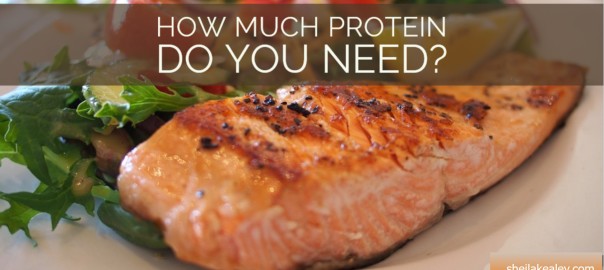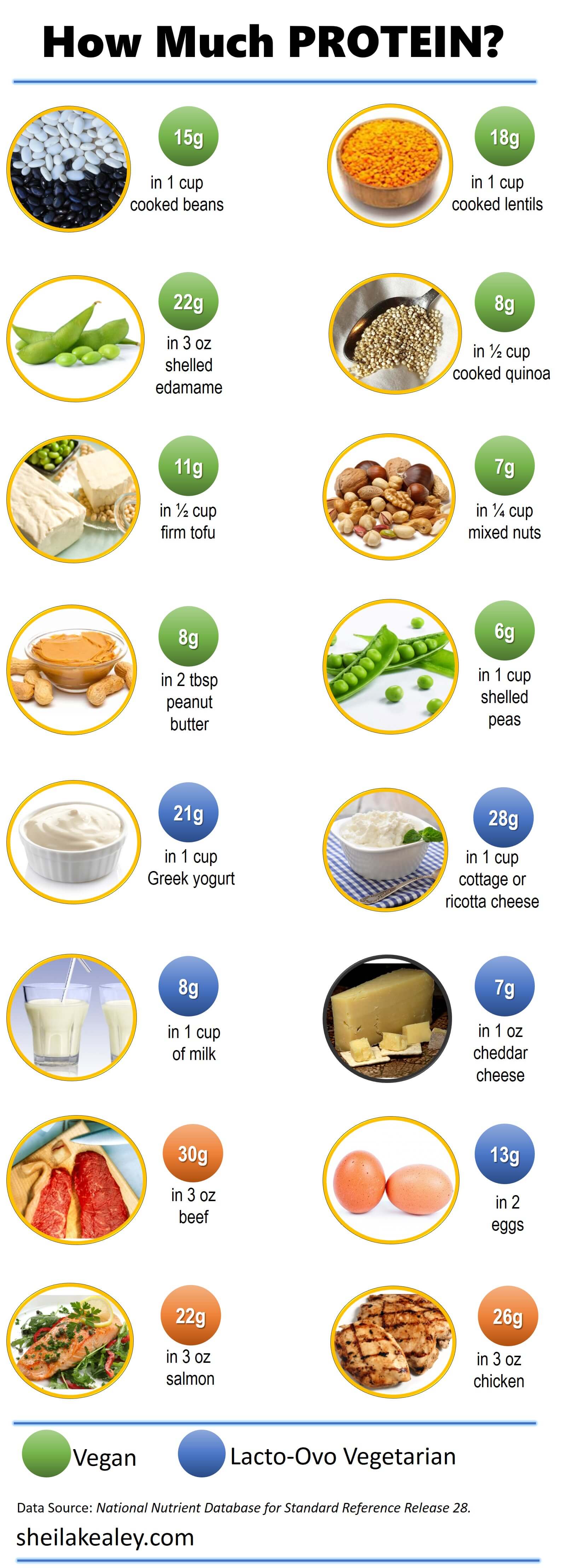Protein is essential for life and an important part of every cell in our bodies. The building blocks of protein, amino acids, are needed to repair cells, build and repair muscles, and to make hormones, enzymes, and antibodies. Protein can also influence our immune function and metabolism.
Although most people are eating enough protein, many could choose better protein sources and optimize how they distribute their protein intake throughout the day. For example, the average person eats too much protein for supper, and too little in the morning. Almost everyone can benefit from including some protein at most meals and snacks to help control blood glucose levels and feel full longer. Athletes are another group who can benefit from better protein distribution, as you’ll see below.
The amount of protein that you need depends on your age, weight, and how active you are. The Recommended Dietary Allowance for protein is 0.8 grams per kilogram per day (or 0.36 g per pound) for adults; children need more because they are still growing. This works out to about 45 g/day for a 125-lb (57 kg) adult, 55 g for a 150-lb (68 kg) adult, and 65 g for a 180-lb (82 kg) adult. But research shows this estimate might be on the low side, particularly for certain groups of people.
 Athletes
Athletes
Athletes, especially those engaged in intense training or strength training, have higher protein requirements. Athletes need more protein than sedentary people because they have a greater lean mass and a greater need for muscle growth and repair. The table below shows estimated protein requirements for athletes. New research suggests protein requirements for endurance athletes may be slightly higher than those indicated in this table (up to 1.8 g/kg/d).
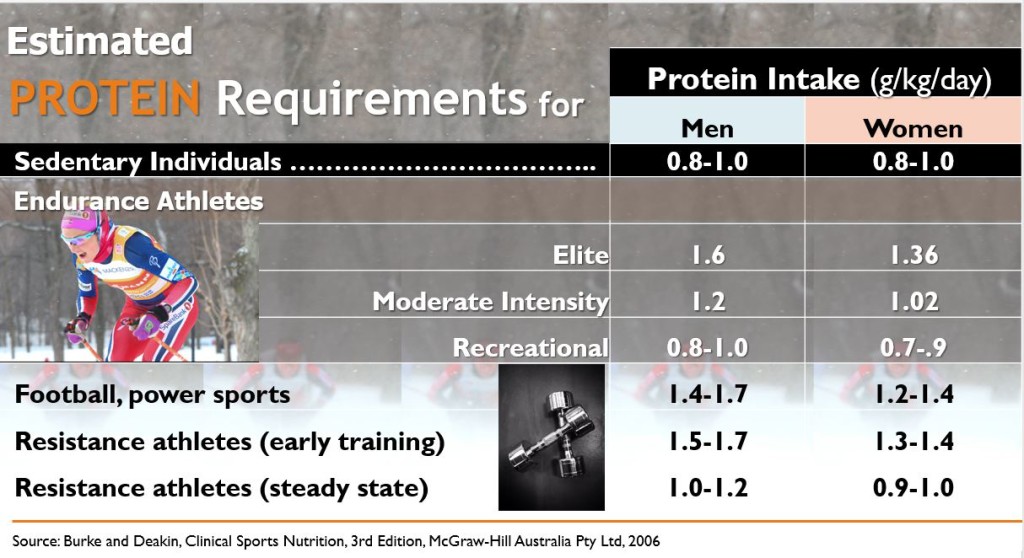
People over 60
It’s harder for older people to build muscle, or even keep the muscle that they have. After 40 years of age, most adults start to lose muscle (estimated at about 8% per decade). Studies show that older adults need more protein to help build muscle and preserve muscle, and most elderly people likely aren’t consuming enough protein (as shown in this recent study.) Experts believe older people should be consuming at least 1.0 to 1.2 g/kg/day to help preserve muscle mass, and this recent study in adults 52-75 years of age suggests that 1.5 g/kg day is necessary to build and maintain muscle.
But it’s important to remember that the most potent stimulus for muscle health (which has a great influence on overall health) is some form of physical activity, especially strength training. Healthy muscles are important for day-to-day activities, coordination, and balance. Stack the cards in your favor, and strengthen your muscles now. No matter your age, it’s never too late start!
How Should I Meet My Protein Requirements?
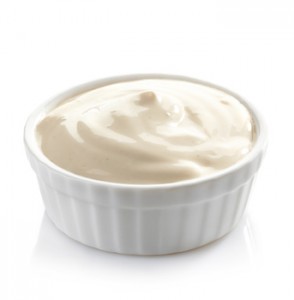 Best Protein Sources
Best Protein Sources
For overall health and nutrition, you should get protein from a variety of different foods. In terms of muscle growth and repair, the amino acid leucine seems to be important, especially after exercise or strength training. Studies suggest that whey protein, a rapidly digestible protein found in milk and milk products, might have an edge on other protein sources for muscle building and repair. Whey is also a good source of three essential amino acids thought to be critical for repairing and building muscle (the branched chain amino acids leucine, isoleucine, and valine).
For optimal health, be sure to look beyond a food’s protein content: consider the entire “protein package,” or the important nutrients you’re getting along with the protein.
- MILK & MILK PRODUCTS have the added benefit of calcium.
- MEAT provides iron and zinc, but can be high in saturated fat, so choose lean cuts
- FISH and SEAFOOD are also a good source of the anti-inflammatory omega-3 fats
- LEGUMES are rich in fiber and other protective phytochemicals
- TOFU and other traditional soy-based foods like tempeh are a healthful source of protein
- NUTS contain fiber, healthy fats, and other protective compounds.
Protein Content of Common Foods
This table, from my cookbook and food guide, shows you the many ways you can achieve your daily protein requirement.
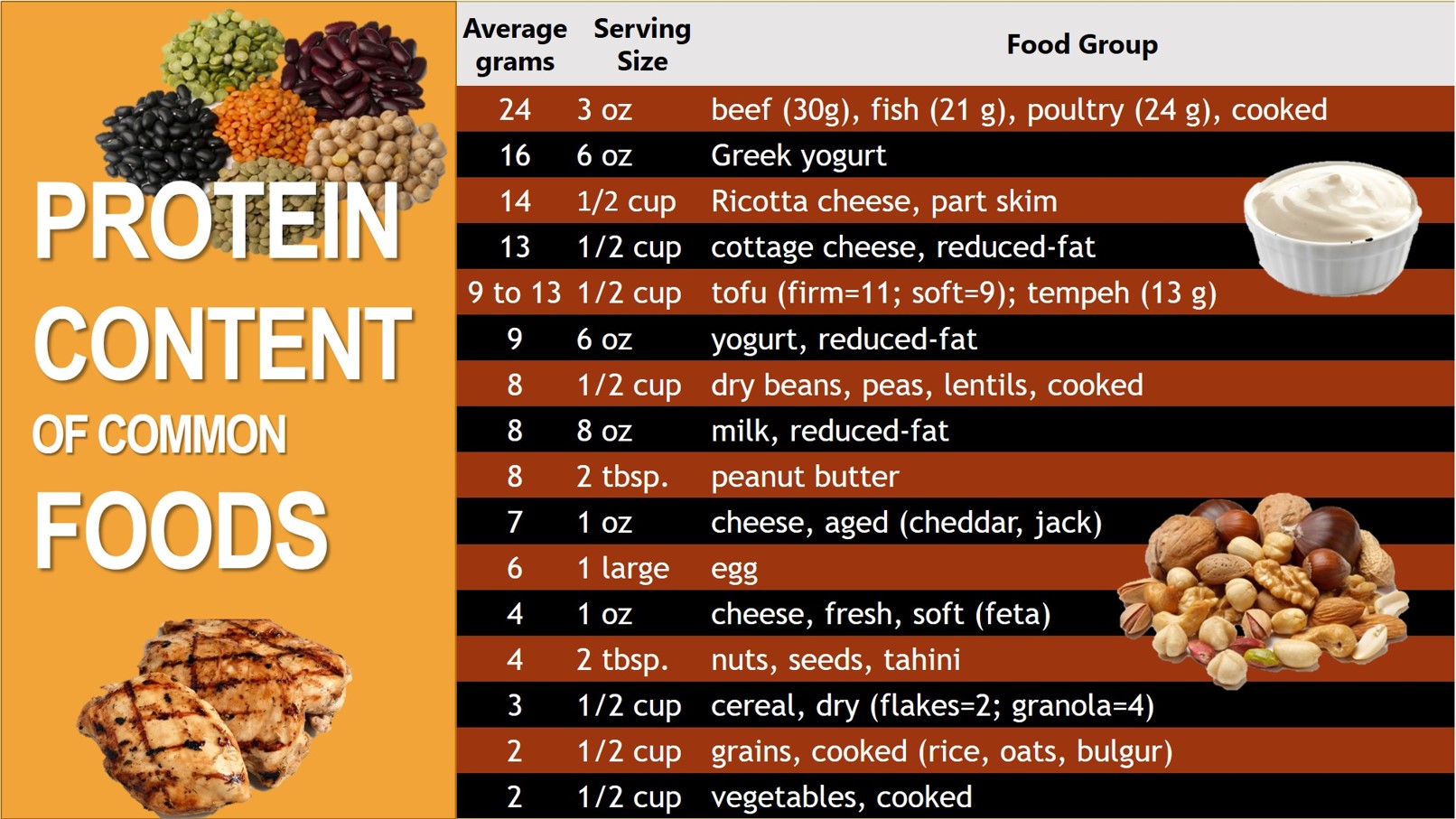
Also, here’s an infographic showing protein content of foods. I’ve focused on non-meat sources since they vary quite a bit (and you can typically expect about 20 to 30 g from most meat, fish, and poultry).
What Does a Day’s Worth of Protein Look Like?
Here is how a 70 kg (154 lb) endurance athlete can achieve an intake of 1.5 g protein/kg, distributed for optimal muscle protein synthesis in a day through healthful foods.
 Breakfast includes
Breakfast includes
- 6 oz. Greek yogurt (16 g)
- 2 tbsp. peanut butter (8g)
Lunch includes
- 1 cup lentils (16g)
- 1 oz cheese (7g)
- 8 oz milk (8 g)
- 1 fruit serving (2g)
- 1 vegetable serving (2g)
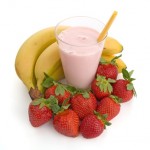 Snack includes
Snack includes
- Smoothie with yogurt, milk, fruit (12 g)
- handful of nuts (8g)
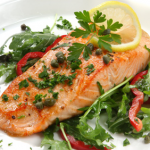 Supper includes
Supper includes
- 3 oz salmon (21 g)
- 1 cup vegetables (4 g)
- ½ cup cooked brown rice (2 g)
This diet would likely include more foods that contribute protein, so you see it’s not that hard to meet protein needs. Eating more than the requirement usually isn’t a problem if it’s not at the expense of other healthy foods you need for good health.
Do I Need Protein Powder or Protein Bars?
Most people are already eating more than the recommended amount of protein through their diet. Your first option should be real foods like beans, legumes, meats, and dairy, because these foods offer other important nutrients that your body needs. Sometimes protein supplements like bars can be convenient, just keep in mind what you’re getting along with the protein (often lots of sugar!). Protein powders aren’t necessary, but might help some people boost their protein intake in the morning if they add it to a smoothie or hot cereal. Real food is best, because these supplements can be expensive, are often highly processed, can have questionable additives, and often contain lots of sugar or artificial sweeteners.
 Does it Matter When I Eat Protein?
Does it Matter When I Eat Protein?
Yes. Your body can only store and use a small amount of protein at a time, so when you eat protein influences how your body uses it.
Most people tend to consume enough protein, but the way it’s typically distributed throughout the day isn’t optimal for muscle building or repair.
Your body needs about 20 to 30 grams at a time for muscle building processes: most people don’t consume this amount in the morning, but eat two to three times the amount they need at dinner.
Eating large amounts of protein at one sitting doesn’t help muscles, as it’s not “saved for later” like carbohydrates or fat are, but used for energy or stored as fat. So, although someone could be getting the amount of protein they need in a day, because it’s not properly distributed, they aren’t getting what their body needs.
Build a Better Breakfast
Breakfast is likely the meal where you are falling short, so consider adding Greek yogurt, eggs, cottage cheese, or other high-protein foods to meet your protein needs. Or try this nutritious breakfast, one of my favourites!
Bottom Line
- Aim for 3 meals a day with about 20-30 grams of protein, chosen from a variety of healthy sources.
- Include some form of strength training in your physical activity routine
ATHLETES
- Target 4 meals a day with at least 20 grams of protein to help muscles recover from workouts, or to help build muscle.
- Protein is important, but you won’t eat your way to great performances or strong muscles: much more critical is a well-planned training program with efforts to stimulate muscle growth and recovery to allow for muscle repair.
- After workouts, some protein is important for muscle repair, but don’t ignore the more fundamental need of carbohydrates to refuel your muscles
- Although protein is important to build and repair muscles, an endurance athlete is fueled by carbohydrates, so carbs should still be the foundation of your workout snacks and most meals.
More Sports Nutrition Articles
- Nutrition Strategies for Health and Athletic Performance
- Dietary Nitrates, Sports Performance, and Health
- Athletes Avoiding Gluten and Grains: Is There Good Evidence?
- The Iron Needs of Athletes: Who Needs More, and How to Get it Through Your Diet
- Healthy or Hype? Chocolate Milk for Recovery
- What Should I Eat Before I Workout?
- Energy Bars: What to Look for, Real Food Alternatives, and How to Make Your Own
- Will Beet Juice Improve Endurance Performance?
- Refueling for Recovery
- You Fuel your Workouts, but How Does the Rest of your Diet Stack Up?
________________
Updated June 26, 2016
Skier (Charlotte Kalla) photo by Frankie Fouganthin (Own work) [CC-BY-SA-3.0 (http://creativecommons.org/licenses/by-sa/3.0)], via Wikimedia Commons Share This: